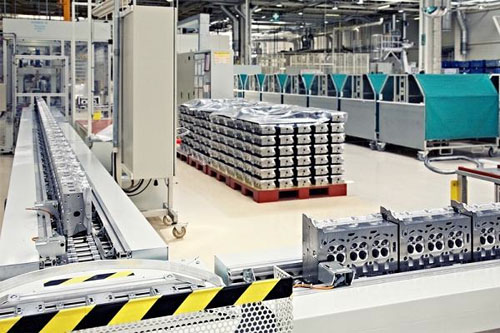The automotive industry has always been one of the first things that come to a person’s mind when it pertains to manufacturing and groundbreaking methodologies. One of the most well-known methodologies to originate from the automotive industry is lean manufacturing, which was developed from the Japanese and Toyota.

As this process has been utilized within manufacturing operations around the globe, there have also been various other manufacturing strategies that are utilized as well. Each of these strategies may vary from each automotive manufacturing operation, but all are extremely beneficial to understand when seeking to implement one of these strategies. Therefore, within this blog we are going to discuss the top manufacturing strategies within the automotive industry.
Top Manufacturing Strategies for the Automotive Industry
The smartest manufacturing strategies all have common attributes. Most, if not all, have a procedural basis that relies heavily upon creating a quality product. These procedures are also designed to learn or improve over time by monitoring and incorporating actions that improve results while also discarding those that tend to degrade results. These advanced methods and strategies include the following:
- Six Sigma - Six Sigma is one of the most well-known and defined approaches within the manufacturing industry. Six Sigma has specified metrics that have been applied to all types of businesses processes. The goal of Six Sigma is to achieve no more than 3.4 deviations or defects for one million processes. Six Sigma is based solely upon the standard deviation of the normal distribution curve, which is the amount of separation from the mean of the population.
- Lean Manufacturing - Lean manufacturing is solely about waste reduction. Any activity that pertains to creating waste or negatively impacts the production process is considered wasteful and should be removed/eliminated with time. This is often combined with Six Sigma to form Lean Six Sigma, which is extremely common within the manufacturing industry.
- Industry 4.0 - Industry 4.0 refers to the current trend to fully automate factories and digitize communication between equipment. It encompasses a number of technologies, including cloud computing, cognitive learning, and various others to create a “smart factory.” This approach is still relatively new but has promises to evolve significantly throughout time.
- Agile Manufacturing - Agile manufacturing pertains to the ability to quickly respond to changes within the manufacturing process and a product in development. This is to meet the needs of a product to be developed. The emphasis is placed upon efficiency and quality. The level of agility is on the range of adaptability of the process without the need for any significant additions or costs, such as equipment acquisition.
It is important to understand these manufacturing methodologies and how they may contribute to your manufacturing operation. A software that can aid with implementation and oversight of these methodologies include Advanced Planning and Scheduling (APS) Software. Advanced Planning and Scheduling Software can be implemented into manufacturing operations around the globe and can easily provide thorough insight into their manufacturing operation as a whole. As production software such as ERP and MRP lack in specific areas, this is where Advanced Planning and Scheduling (APS) software can come in to play a role and reduce waste, improve profitability, reduce cost, and more. APS software is being implemented into production facilities around the globe and is allowing facilities to reap the benefits associated with the software.
Advanced Planning and Scheduling Software
Advanced Planning and Scheduling (APS) software has become a must for modern-day manufacturing operations due to customer demand for increased product mix and fast delivery combined with downward cost pressures. APS can be quickly integrated with a ERP/MRP software to fill gaps where these system lack planning and scheduling flexibility and accuracy. Advanced Planning and Scheduling (APS) helps planners save time while providing greater agility in updating ever-changing priorities, production schedules, and inventory plans.
- Create optimized schedules balancing production efficiency and delivery performance
- Maximize output on bottleneck resources to increase revenue
- Synchronize supply with demand to reduce inventories
- Provide company-wide visibility to capacity
- Enable scenario data-driven decision making
Implementation of Advanced Planning and Scheduling (APS) software will take your manufacturing operations to the next level of production efficiency, taking advantage of the operational data you already have in your ERP.




















LEAVE A COMMENT